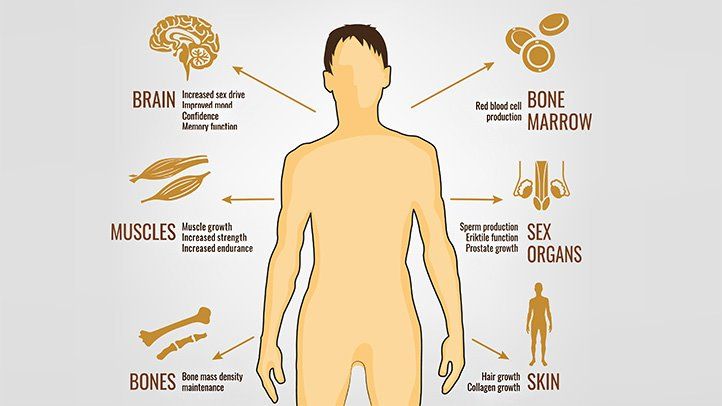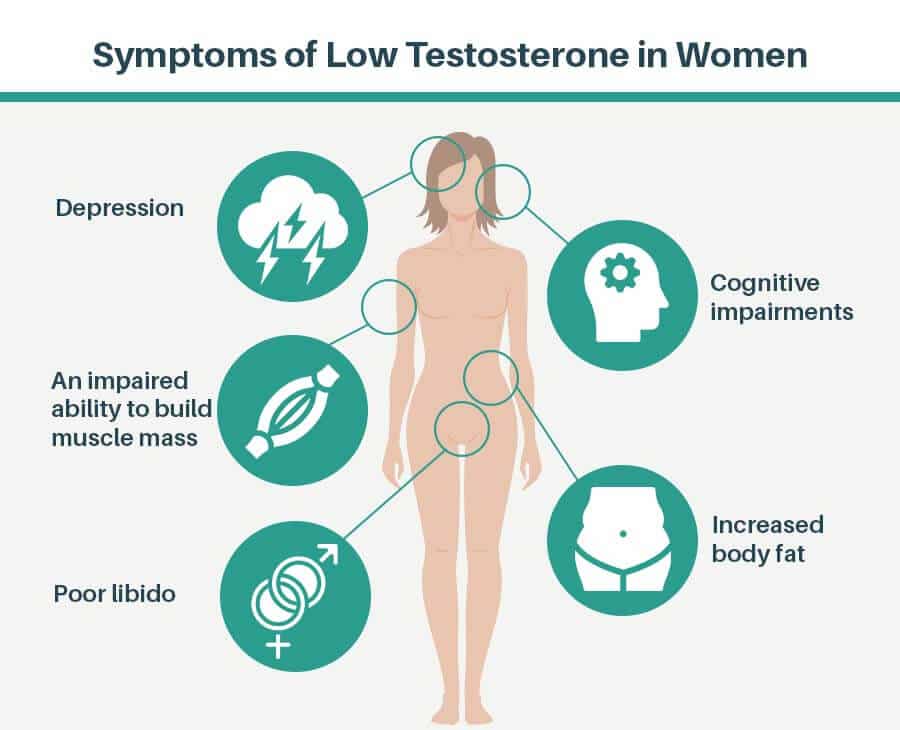
8 Low Testosterone Causes (Low T): Symptoms & Treatment
Low Testosterone causes a variety of physical problems. Among them are an increase in body fat and a decrease in muscle mass. As the hormone that regulates metabolism, testosterone is also important for bone growth. If you suffer from a low testosterone level, you may also find it difficult to sleep and have a low libido and normal testosterone levels.
Low Testosterone causes erectile dysfunction
If you’re experiencing problems getting an erection, it may be due to a low Testosterone level. Low Testosterone causes problems with the quality and length of erections, and it can also affect your libido. Fortunately, there are treatments for Low Testosterone. Testosterone replacement therapy is a viable option to treat this condition. In many cases, men will notice a significant improvement in their erections after undergoing a testosterone replacement therapy affect testosterone levels.
Testosterone replacement therapy
While most men don’t get regular health screenings, it’s important to know that low Testosterone can also cause cardiovascular disease. A Cleveland Clinic survey revealed that 55% of men don’t get regular health screenings. Furthermore, most men don’t know their complete family history of cancer or urological conditions.
Furthermore, 44% of men surveyed stated that erectile dysfunction was their biggest health concern as they aged. Interestingly, a majority of men wrongly believe that a low Testosterone level is the cause of erectile dysfunction. Instead, cardiovascular disease is more likely to be the cause of erectile dysfunction low testosterone medically causes testosterone.
Infertility
Men with low testosterone often have difficulty conceiving and have trouble maintaining a healthy libido. If you are suffering from a low Testosterone level, it is important to consult a fertility specialist. This medical professional can determine the cause of your low testosterone level and develop an endocrine treatment plan to improve your odds of getting pregnant urology care foundation that causes low testosterone.
Low testosterone symptoms
The symptoms of low testosterone can range from reduced sex drive to erectile dysfunction. Low testosterone can even affect a man’s bone density. It also affects the motility of sperm, so it can have a negative impact on male infertility.
Other conditions that can cause decreased fertility include a varicocele, which is a swelling of the veins draining the testicle. Infections can also interfere with sperm production. Some sexually transmitted infections can block sperm passage, while others can cause scarring and other long-term damage to the testicles. Despite these conditions, most sperm can be harvested if they reach the uterus.
While testosterone replacement therapy is not a good option for many men, it can help some men. However, this treatment is only appropriate for younger men and should only be used when medically indicated. A doctor can administer gonadotropin injections, which stimulate the pituitary gland, increasing the production of endogenous testosterone. The hormone is also used in conjunction with fertility drugs such as Clomid.

Sleep disturbances
Sleep disturbances are one of the most common symptoms of low testosterone. Sleep disturbances can be caused by various factors, including stress, mental disorders, and lifestyle changes. Age also contributes to sleep disturbances, as does decreased physical activity, obesity, and chronic disease. Testosterone replacement therapy improves many clinical symptoms of hypogonadism, including sleep disturbance.
Getting enough sleep is crucial for healthy testosterone production. If you have trouble falling asleep or staying asleep, try doing something calming before going to sleep. Stress directly impacts your ability to sleep because it raises cortisol, which blocks testosterone’s effects. Relaxation techniques, such as yoga, meditation, and visualization, can all reduce stress and improve sleep.
Sleep apnea is another condition that can cause sleep disturbances. It can reduce REM sleep, which leads to lower levels of testosterone. Obesity may also contribute to lower testosterone levels. If you suffer from sleep apnea, it may be best to consult your doctor to rule out other conditions before trying testosterone replacement therapy. If you suspect you have low testosterone, you should schedule a sleep test and a physical exam to see if you have any other symptoms.
People who are not getting enough sleep may have trouble concentrating. Not only are they irritable and tired, but extreme fatigue can lead to more serious health problems. The lack of sleep can also cause depression, headaches, and loss of appetite.
Low Aggression
The symptoms of low testosterone include aggression and agitation. Although animal studies are not always relevant to human emotions, it has been shown that low levels of testosterone can lead to these problems. For example, testosterone injections may increase aggression in laboratory animals. However, this does not necessarily mean that low levels of testosterone cause aggression in people. Human hormone levels can be affected by social factors, such as the amount of stress an individual experiences. For example, prison inmates may have very high levels of stress, and their hormone levels may change in response to this type of stress.
Urology testosterone
While studies have not found a clear connection between high testosterone levels and aggressive behavior, it is known that high levels of testosterone are associated with aggressive behavior. This may be because athletes like football players and weight-lifters often take extremely high levels of anabolic steroids to enhance their muscle mass and strength. These types of drugs can cause an individual to become aggressive.
Researchers are now beginning to wonder if testosterone is directly linked to male aggression. The reason for this is that testosterone has an estrogenic effect on the brain. An enzyme in the brain called aromatase converts testosterone to estrogen, which affects nerve cells in the brain through estrogen receptors. The male brain has fewer and smaller receptors for androgens than those in the female brain.
Hypogonadism
Hypogonadism due to low levels of testosterone is a common and potentially life-threatening condition. It is associated with increased risk for cardiovascular disease, such as atherosclerosis. Research has linked low testosterone levels with several surrogate end points of atherosclerosis, including clinical indicators and mechanistic processes involved in atherosclerosis.
The Veteran was examined by the VA in July 2009 for erectile dysfunction and found to have hypogonadism due to low testosterone. The physician concluded that the veteran had been suffering from erectile dysfunction and low testosterone for four to six years prior to his examination. The Veteran self-reported hypogonadism in late 2006, and initiated hormone replacement therapy. Nonetheless, the examiner concluded that the condition was not related to any specific event during his service.
In primary hypogonadism, the testicles are unable to produce normal amounts of testosterone. The pituitary gland responds to low testosterone by producing more hormones called gonadotropins. These hormones tell the testicles to produce more testosterone. This process does not work if the testicles are missing or damaged.
Laziness
Although low testosterone levels are a serious health problem, there are a few simple steps you can take to help alleviate its effects. One of the best ways is to get more sleep. During sleep, men produce most of their testosterone. Hence, the less sleep you get, the lower your testosterone levels. Avoid caffeine and alcohol, which can disrupt your sleep. If you have sleep apnea, you should consider medication to treat the condition. Moreover, eat a healthy diet. Alcohol consumption is also a risk factor for low testosterone, as it can lead to liver dysfunction and lower your testosterone levels.
Another symptom of low testosterone is fatigue. Men with low testosterone often feel tired and lack motivation to do everyday tasks. They may also feel blue, unmotivated, and less optimistic. This can lead to grouchiness and irritability. Fortunately, the symptoms of low testosterone are treatable, and can be reversed with a proper medical diagnosis.
In addition to fatigue, low testosterone levels can also cause lack of interest in exercise. Those with low testosterone levels may also be less interested in sex or may have trouble getting adequate sleep. These symptoms can be an indication that your testosterone levels are too low and that you should visit a doctor to get tested.
Weight gain
Weight gain is one of the most common Low Testosterone symptoms for men. As a result, if you have the problem, you may need to increase your exercise program to help you lose the extra pounds. You can do so by eating healthier and exercising more often. You can also lose weight by avoiding junk food.
Men with low testosterone are more likely to gain weight, experience fatigue, and have decreased libido. They may also experience gynecomastia, an enlarged breast tissue caused by an imbalance between testosterone and estrogen. In addition, men with low levels may have increased chances of developing cardiac problems and other health problems.
Low Testosterone symptoms in men can be a warning sign that something is wrong. You should visit a doctor if you have any of these symptoms. Your doctor will be able to evaluate your hormone levels and determine the proper course of treatment. Medications can help.
The hormone testosterone increases your energy, motivation, and drive. When these hormones are elevated, your weight loss and exercise program will be magnified. A doctor may prescribe hormone replacement therapy to boost your levels. This involves testing your levels and administering hormones that will restore them to a healthy level.